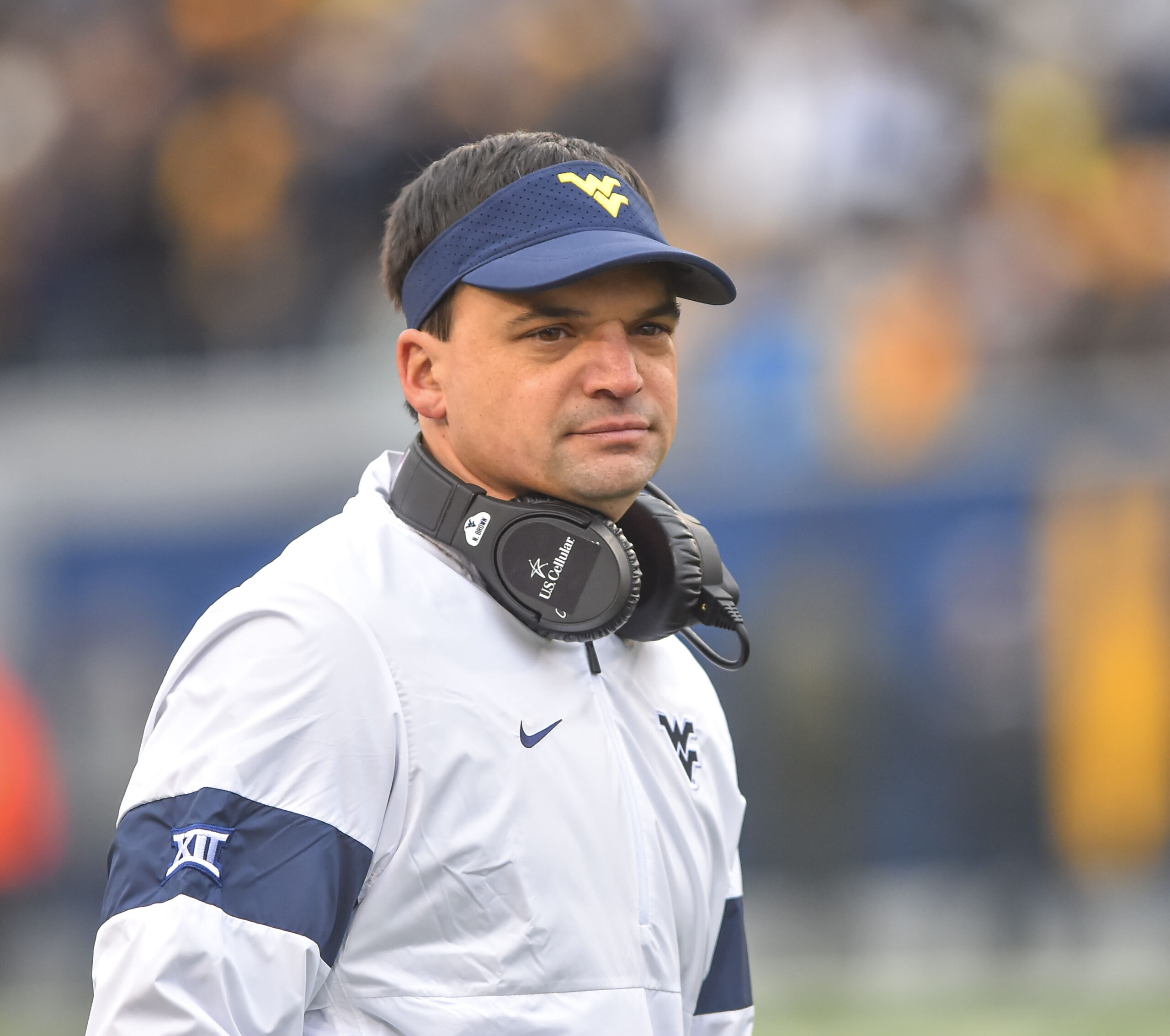MORGANTOWN, W.Va. — The spring practice season has already been derailed for the West Virginia football team, punctuated by the cancellation Sunday night of the April 18 spring game.
The COVID-19 virus pandemic forced all college coaches to read just how to handle not only missed time on the field, but on the recruiting trail. These are unprecedented times, so trying to keep pace with the rapid pace of the ever-changing recruiting landscape is perhaps the biggest hurdle WVU coach Neal Brown and his coaching staff is trying to overcome.
The NCAA suspended on-campus and off-campus recruiting visits in mid-March, while also canceling in-person visits to campus through April 14. That, essentially, wiped out any chance the Mountaineers — or any FBS program — had of hosting players during spring practice so they could get a feel of how the program is run.
There is an evaluation period from April 15-May 31, but without the ability to host anymore, there won’t be much to evaluate. Following the evaluation period, traditionally, is when summer camps take up a vast majority of the calendar in June and July.
Luckily for Brown, he said most of the evaluations for the 2021 class are done, but keeping track of those in the 2022 and 2023 classes will take a major hit, especially those who do not live in the region.
“A lot of the people who have already been to our campus, especially in our primary area with a 4-6 hour drive, have been on our campus multiple times,” Brown said. “The real challenge is for those recruits who haven’t been on our campus. There are a lot of things that are great about West Virginia that we want to bring to them, so we’ve tried to come up with different videos and things like that.”
Recruits, especially from the southeast, won’t be able to come to campus, and Brown said he was expecting many to come during their respective spring breaks to watch practice.
With those who have been on campus a lot already, Brown said he is trying to stay in constant communication virtually, whether it’s FaceTime or phone calls, “Perhaps even more than usual.”
While no plan has been announced yet, there is a strong likelihood the camp schedule will be impacted this summer, which would have major ramifications on the recruiting front. Coaches won’t get the up-close-and-personal look at players, which hurts evaluations and subsequently delays the entire process.
Camps “are a huge piece,” Brown said. “The live evaluations are very, very important. “Most college football teams make recruiting decisions on live evaluations, whether it’s in a camp setting or spring football. Wherever it is, you’re not going to have those live evaluations, so that’s going to change the landscape. That’s another information point that you’re not going to have an opportunity to have. That’s unfortunate, but we’re all on the same playing field.”
As far as moving the recruiting calendar around, if and when the outbreak is under control, Brown isn’t sure how it would work. He already believes the spring recruiting period won’t happen, but moving it to the summer and pushing back camps is a “complicated” process.
“So much of the spring evaluation period is based on schools in session,” Brown said. “Will we move some of those things to the summer? I don’t think so just because I think it’s really complicated. We’re moving forward as if we’re going to have camps, but we’re moving forward with every bit of understanding that the NCAA might say, ‘Hey, we’re not having camps,’ or our university might say, ‘Hey, we’re not having camps.’
“Either way, we have to prepare as if we’re going to have camps. If they get shut down, we’ll deal with it. That’s kind of how we’re operating.”




